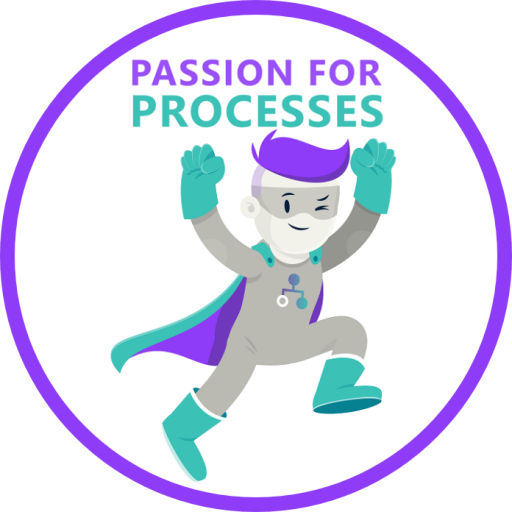I have no idea what on earth this help text is trying to tell me:
DialogTemplate
createNewDialogTemplate ( int X, int Y, int DX, int DY, String Title, String sDialogFunc )
Deprecated
Hint:Do not use old dialogs any more, since all new powerful feature will only be available in the new dialogs
I think it is telling me not to use this method because there are way better methods that are super powerful but it keeps the new preferred methods and the powerful feature a secret! I love that it is called a "Hint" in the text because it plays on the idea that it isn't going to tell you the answer only that it is going to tease the reader with a vague clue.
I just want to create a dialog (which this method does) but with a specific Dx by Dy. When I use this method (or others of the same class) the sizing doesn't work as expected. I assume this is all explained in the help somewhere but I can't find it. Any suggestions on where to look would be appreciated.
Graham.
Hi Graham,
just have a look at the overview page of "Dialogs" object (http://[yourserver]/abs/help/en/script/ba/index.htm#report_OBJECTS_Dialogs.htm):
...
|
createNewDialogTemplate ( int X, int Y, int DX, int DY, String Title, String sDialogFunc ) Deprecated |
|
|
createNewDialogTemplate ( int X, int Y, int DX, int DY, String Title ) Creates a blank dialog template for "old style" dialogs. |
|
|
createNewDialogTemplate ( int X, int Y, int DX, int DY ) Creates a blank dialog template for "old style" dialogs. |
|
|
createNewDialogTemplate ( int DX, int DY, String Title ) Creates a blank dialog template to be used in [dialogObject].getPages(). |
|
|
createNewDialogTemplate ( int DX, int DY ) Creates a blank dialog template to be used in [dialogObject].getPages(). |
|
|
createUserDialog ( DialogTemplate template ) Deprecated |
...
Furthermore you'll find a complete example on the main help page of the "Dialogs" object:
http://[yourservername]/abs/help/en/script/ba/index.htm#report_OBJECTS_DialogObject.htm
...which is linked from all relevant "createNewDialogTemplate" methods.
For completeness at this place, the example:
var test = 0;
function myDialog()
{
// all member functions except for getPages can access the property "dialog" of the dialog class. Type is "UserDialog" (see help).
// examples:
// - Get the page with the specified index (e.g. 0): this.dialog.getPage(0)
// - Define the list of visible wizard pages (e.g. 0,1): this.dialog.setActiveWizardPages([0,1])
// returns DialogTemplate[]
// non-optional
this.getPages = function()
{
var iDialogTemplate1 = Dialogs.createNewDialogTemplate(600, 200, "First page");
iDialogTemplate1.PushButton(35, 5, 80, 15, "Press", "BUTTON_1");
iDialogTemplate1.CheckBox(120, 5, 100, 15, "CheckMe", "CHECKBOX_1");
iDialogTemplate1.ComboBox(10, 60, 100, 40, ["Value 1", "Value 3", "Value 2", "Value 4"], "COMBO_1");
iDialogTemplate1.DropListBox(355, 60, 100, 40, ["sorted 1", "sorted 3", "sorted 2", "sorted 4"], "COMBO_4", 3); //sorted + editable
iDialogTemplate1.Text(10, 170, 100, 16, "stat. Text");
iDialogTemplate1.TextBox(120, 170, 100, 16, "TXT_EDIT_1");
var iDialogTemplate2 = Dialogs.createNewDialogTemplate(400, 200, "Second page");
iDialogTemplate2.Text(10, 10, 100, 16, "stat. Text");
iDialogTemplate2.TextBox(10, 40, 100, 16, "TXT_EDIT_2");
iDialogTemplate2.TextBox(10, 80, 150, 16, "TXT_EDIT_3");
return [iDialogTemplate1, iDialogTemplate2];
}
// initialize dialog pages (are already created and pre-initialized with static data from XML or template)
// parameter: Array of DialogPage
// see Help: DialogPage
// user can set control values
// optional
this.init = function(aPages)
{
//use this function also to store the page data locally (for example to access it in "onClose")
aPages[0].setFocusedElement("TXT_EDIT_1");
aPages[0].getDialogElement("TXT_EDIT_1").setText("Start value 1");
aPages[1].getDialogElement("TXT_EDIT_2").setText("Start value 2");
aPages[1].getDialogElement("TXT_EDIT_3").setText("Start value text 3");
aPages[1].setFocusedElement("TXT_EDIT_2");
}
// returns true if the page is in a valid state. In this case "Ok", "Finish", or "Next" is enabled.
// called each time a dialog value is changed by the user (button pressed, list selection, text field value, table entry, radio button,...)
// pageNumber: the current page number, 0-based
this.isInValidState = function(pageNumber)
{
return true;
}
// called when the page is displayed
// pageNumber: the current page number, 0-based
// optional
this.onActivatePage = function(pageNumber)
{
}
// returns true if the "Finish" or "Ok" button should be visible on this page.
// pageNumber: the current page number, 0-based
// optional. if not present: always true
this.canFinish = function(pageNumber)
{
return true;
}
// returns true if the user can switch to another page.
// pageNumber: the current page number, 0-based
// optional. if not present: always true
this.canChangePage = function(pageNumber)
{
return true;
}
// returns true if the user can switch to next page.
// called when the "Next" button is pressed and thus not suitable for activation/deactivation of this button
// can prevent the display of the next page
// pageNumber: the current page number, 0-based
// optional. if not present: always true
this.canGotoNextPage = function(pageNumber)
{
return true;
}
// returns true if the user can switch to previous page.
// called when the "Back" button is pressed and thus not suitable for activation/deactivation of this button
// can prevent the display of the previous page
// pageNumber: the current page number, 0-based
// optional. if not present: always true
this.canGotoPreviousPage = function(pageNumber)
{
return true;
}
// called after "Ok"/"Finish" has been pressed and the current state data has been applied
// can be used to update your data
// pageNumber: the current page number
// bOK: true=Ok/finish, false=cancel pressed
// optional
this.onClose = function(pageNumber, bOk)
{
}
// the result of this function is returned as result of Dialogs.showDialog(). Can be any object.
// optional
this.getResult = function()
{
return this.dialog.getPage(1).getDialogElement("TXT_EDIT_2").getText()
}
// other methods (all optional):
// - [ControlID]_pressed(),
// - [ControlID]_focusChanged(boolean lost=false, gained=true)
// - [ControlID]_changed() for TextBox and DropListBox
// - [ControlID]_selChanged(int newSelection)
// - [ControlID]_cellEdited(row, column) for editable tables, row and column are 0-based
this.BUTTON_1_pressed = function()
{
this.dialog.getPage(0).getDialogElement("TXT_EDIT_1").setVisible(false)
this.dialog.getPage(1).getDialogElement("TXT_EDIT_2").setEnabled(false)
test = 1;
}
}
var result = Dialogs.showDialog(new myDialog(), Constants.DIALOG_TYPE_WIZARD, "Multi page dialog");
Dialogs.MsgBox(result)













